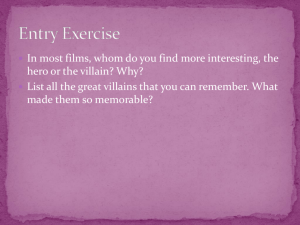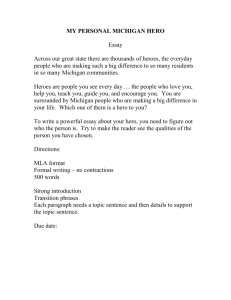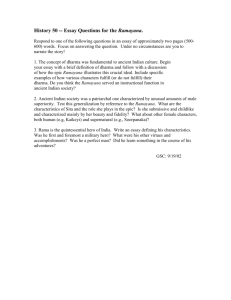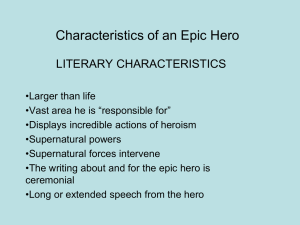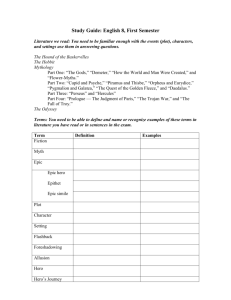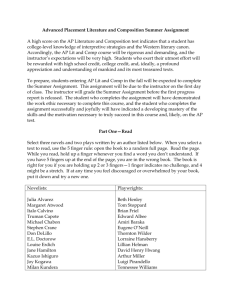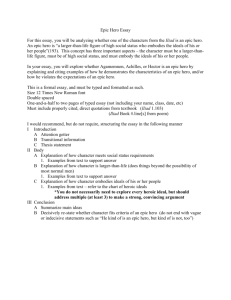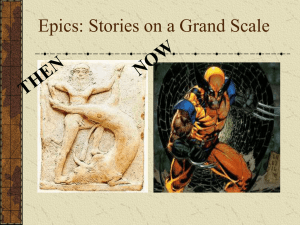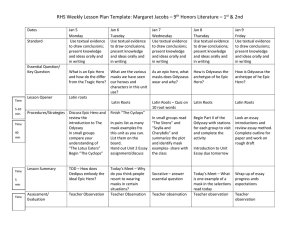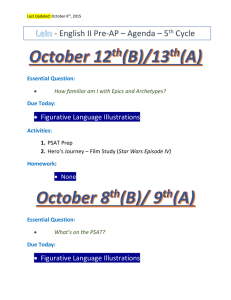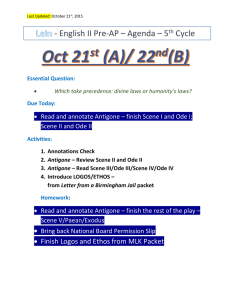exam study guide per 1,2,6,7
advertisement
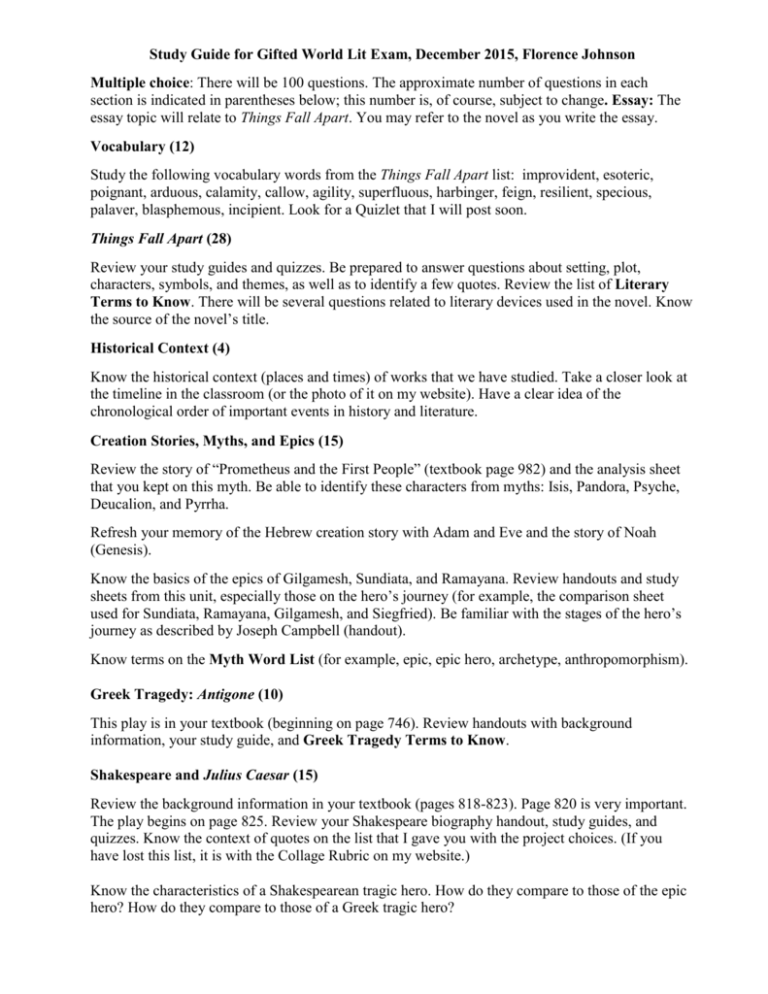
Study Guide for Gifted World Lit Exam, December 2015, Florence Johnson Multiple choice: There will be 100 questions. The approximate number of questions in each section is indicated in parentheses below; this number is, of course, subject to change. Essay: The essay topic will relate to Things Fall Apart. You may refer to the novel as you write the essay. Vocabulary (12) Study the following vocabulary words from the Things Fall Apart list: improvident, esoteric, poignant, arduous, calamity, callow, agility, superfluous, harbinger, feign, resilient, specious, palaver, blasphemous, incipient. Look for a Quizlet that I will post soon. Things Fall Apart (28) Review your study guides and quizzes. Be prepared to answer questions about setting, plot, characters, symbols, and themes, as well as to identify a few quotes. Review the list of Literary Terms to Know. There will be several questions related to literary devices used in the novel. Know the source of the novel’s title. Historical Context (4) Know the historical context (places and times) of works that we have studied. Take a closer look at the timeline in the classroom (or the photo of it on my website). Have a clear idea of the chronological order of important events in history and literature. Creation Stories, Myths, and Epics (15) Review the story of “Prometheus and the First People” (textbook page 982) and the analysis sheet that you kept on this myth. Be able to identify these characters from myths: Isis, Pandora, Psyche, Deucalion, and Pyrrha. Refresh your memory of the Hebrew creation story with Adam and Eve and the story of Noah (Genesis). Know the basics of the epics of Gilgamesh, Sundiata, and Ramayana. Review handouts and study sheets from this unit, especially those on the hero’s journey (for example, the comparison sheet used for Sundiata, Ramayana, Gilgamesh, and Siegfried). Be familiar with the stages of the hero’s journey as described by Joseph Campbell (handout). Know terms on the Myth Word List (for example, epic, epic hero, archetype, anthropomorphism). Greek Tragedy: Antigone (10) This play is in your textbook (beginning on page 746). Review handouts with background information, your study guide, and Greek Tragedy Terms to Know. Shakespeare and Julius Caesar (15) Review the background information in your textbook (pages 818-823). Page 820 is very important. The play begins on page 825. Review your Shakespeare biography handout, study guides, and quizzes. Know the context of quotes on the list that I gave you with the project choices. (If you have lost this list, it is with the Collage Rubric on my website.) Know the characteristics of a Shakespearean tragic hero. How do they compare to those of the epic hero? How do they compare to those of a Greek tragic hero? Writing and Grammar (6) Skills covered: avoiding run-on sentences, punctuating adverb clauses, ensuring parallelism in elements of a sentence. Review grammar handouts and “hit lists.” There is one question related to MLA format. Review how to do in-text citations. Analyzing an Argument (10) You will read an argument and analyze the structure and the rhetorical devices used. Know terms on the Argument Word List. Know the logical fallacies that we have discussed (handout with ethos, pathos, logos on the back). We will discuss some possible essay topics in class so that you can think about them before the exam.
